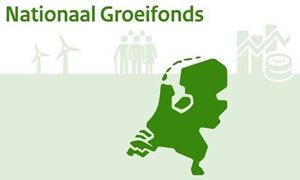
Radboud university medical center will receive a total of 6.4 million euros in funding for the continuation of the European Reference Networks ERN eUROGEN and ERN GENTURIS. Within these ERNs, doctors, patient representatives, researchers and other experts work together to improve care for people with rare diseases in Europe. 'With this continuation, we show that these ERNs have matured.'
Radboud university medical center coordinates two European Reference Networks, or ERNs for short. ERN eUROGEN is led by Professor of Paediatric Urology Wout Feitz, affiliated with Radboudumc Amalia Children's Hospital. ERN eUROGEN focuses specifically on the care of rare uro-recto-genital diseases in children, functional urology with specific surgeries and rare and complex urological tumors. These are problems with the genitourinary system: the kidneys, the bladder, the ureter and the genitals. Within ERN eUROGEN, 56 hospitals from twenty European member states work together. Wout Feitz: 'The ERN motto is Share, Care and Cure, when possible, with equitable access to diagnosis, treatment & care for our patients. I am pleased that we can continue this in the coming years.'
Nicoline Hoogerbrugge is Professor of Hereditary Cancer and coordinator of the ERN GENTURIS, which focuses on hereditary tumours. The main aim of ERN GENTURIS is to improve access to diagnosis, treatment and the provision of high-quality healthcare for patients with rare genetic tumour risk syndromes no matter where they are living in Europe. She explains: 'Twice a month we organize advisory boards with an international group of experts about complex patients. By pooling our knowledge, we can provide much better healthcare than before the ERNS.'
Guidelines for diagnostics and therapies are also discussed. 'At the moment, each member state has its own guideline for hereditary breast cancer, so there are 28 such guidelines. While the knowledge from literature is the same. We want more agreement on this, so patients experience the same care and cure for example in Spain as in the Netherlands.' Within ERN GENTURIS, 51 hospitals from 23 European member states work together.
Forty million people
In recent years, both Feitz and Hoogerbrugge have traveled (virtually) throughout Europe and have met many other ERN coordinators and caregivers, with the aim of learning from each other and putting the ERNs on the map. That has yielded a lot, according to Hoogerbrugge. 'I now see how many similarities there are between rare diseases. It's a matter of looking for attention, research funding and opportunities for education.' That is why more cooperation between the ERNs is one of the things she wants to tackle in the coming years. 'For example, in the field of communication. We want all ERNs to offer comparable activities, and to use the same terminology for these activities. This will make it clearer, both for patients and healthcare providers, which type of support they can expect from an ERN.'
After all, ERNs are relevant to many patients: as many as forty million people in the European Union have a rare disease or complex condition. As far as Nicoline Hoogerbrugge is concerned, the disorders will find a home in one of the 24 ERNs. That is why a joint registration system is being developed, in which a medical doctor of a patient with a rare disorder can find knowledge of other such patients. With the current European financial grants for the next four years, the ERNs enter the next phase: 'We can continue these ERNs no longer as a project but as an infrastructure. The ERNs have grown up and are part of the European Health Care system now.'
European cooperation
European Reference Networks (ERNs) are virtual networks involving healthcare providers across Europe. They aim to facilitate discussion on complex or rare diseases and conditions that require highly specialized treatment, and concentrated knowledge and resources. To review a patient’s diagnosis and treatment, ERN coordinators convene ‘virtual’ advisory panels of medical specialists across different disciplines, using a dedicated IT platform and telemedicine tools. The ERNs were launched in 2017. Today, there are now 24 ERNs in Europe, bringing together 1600 multidisciplinary teams of expertise from 400 hospitals in 28 countries. Read more about ERN's, in particularly ERN eUROGEN, in this article.
More information
Pauline Dekhuijzen

wetenschaps- en persvoorlichter


_1.jpg?width=500&height=333&ext=.jpg&type=BlockColumn1Zoom1)


